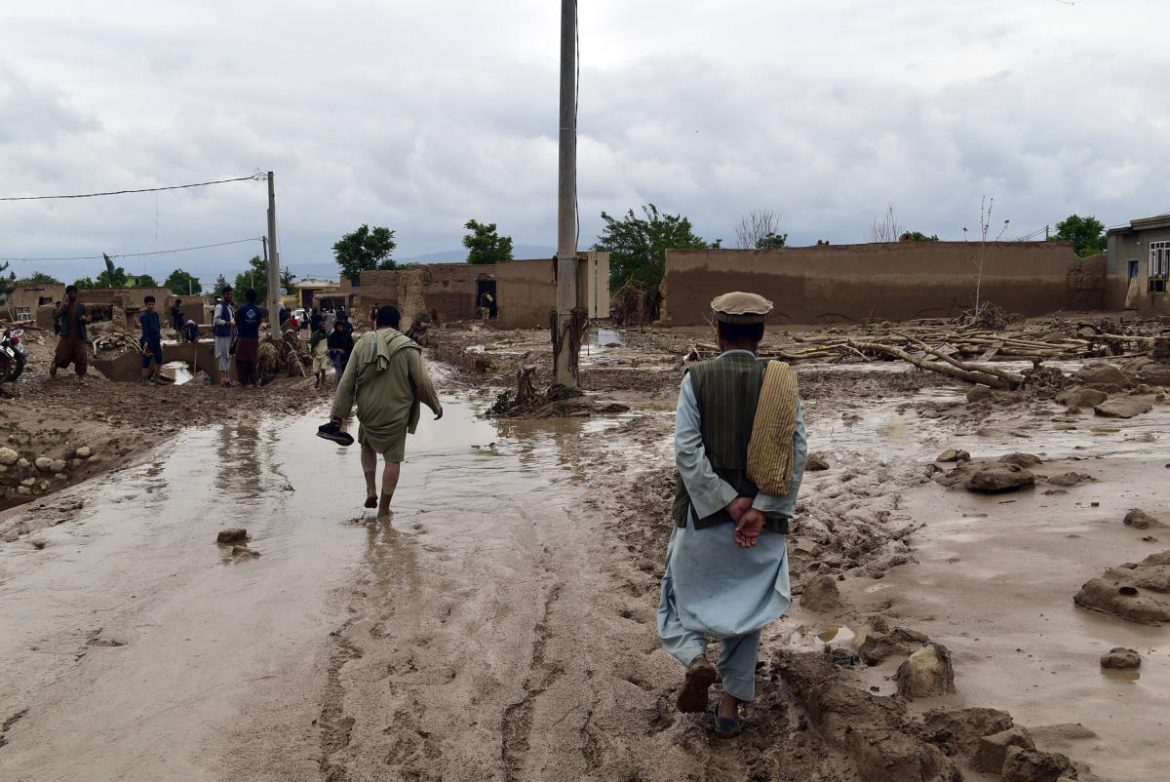At least 60 people have been confirmed killed after fresh bout of heavy rain and flooding hit central Afghanistan.
The World Health Organization, (WHO) has warned of rising cases of waterborne diseases in flood-affected regions.
Abdul Wahid Hamas, spokesperson for Ghor’s provincial governor, on Saturday said that dozens others remained missing, adding that the province had suffered significant financial losses, with thousands of homes and properties damaged and hundreds of hectares of agricultural land destroyed in the floods on Friday, including in the province’s capital city, Feroz Koh.
At least 50 people were reported to have been killed in the hard-hit western province. Meanwhile, 18 people in the northern province of Farayab were killed and two others injured, bringing the known number of fatalities to 68. Damage to property and land was also reported and more than 300 animals died.
Recall that last week 315 people were killed and more than 1,600 injured across the country after heavy rains sparked flash flooding.
Read also: Activists drag Russia to court over ‘weak’ climate policy
Rescue and aid workers have been struggling to reach some of the worst-affected areas, with the World Health Organization echoing Taliban government and NGO warnings that the death toll could rise significantly. Throughout the week, survivors of flooding searched for the missing after torrents of water ripped through villages.
A helicopter used by the Afghan air force crashed on Wednesday owing to “technical issues” during attempts to recover the bodies of people who had fallen into a river in Ghor province, killing one and injuring 12 people, the country’s defence ministry said.
Survivors have been left with no home, no land, and no source of livelihood, the World Food Organization said. Most of Baghlan is “inaccessible by trucks”, said WFP, adding that it was resorting to every alternative it could think of to deliver food to the survivors.
Afghanistan is prone to natural disasters and the UN considers it one of the countries most vulnerable to climate breakdown. It has battled a shortfall in aid after the Taliban took over when foreign forces withdrew from the country in 2021, as development aid that formed the backbone of government finances was slashed.
In a country with a health system already on its knees, some health facilities were rendered non-operational last week by the flooding, which damaged or destroyed thousands of homes and swamped agricultural land.
Story was adapted from the Guardian.
